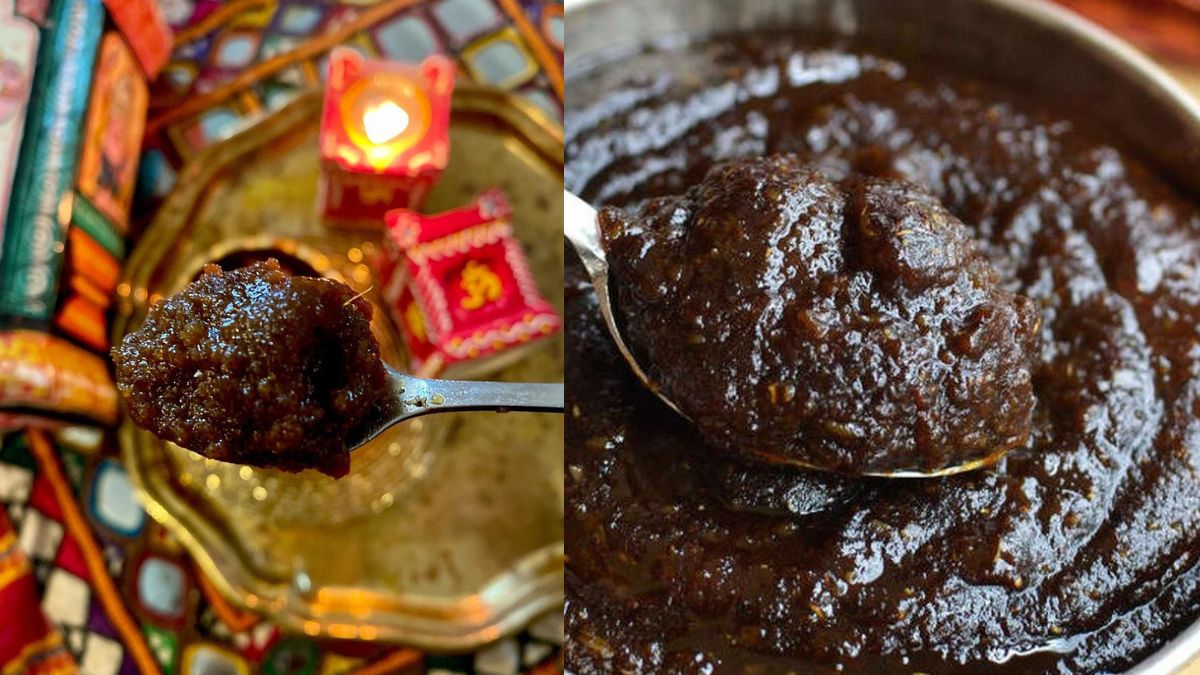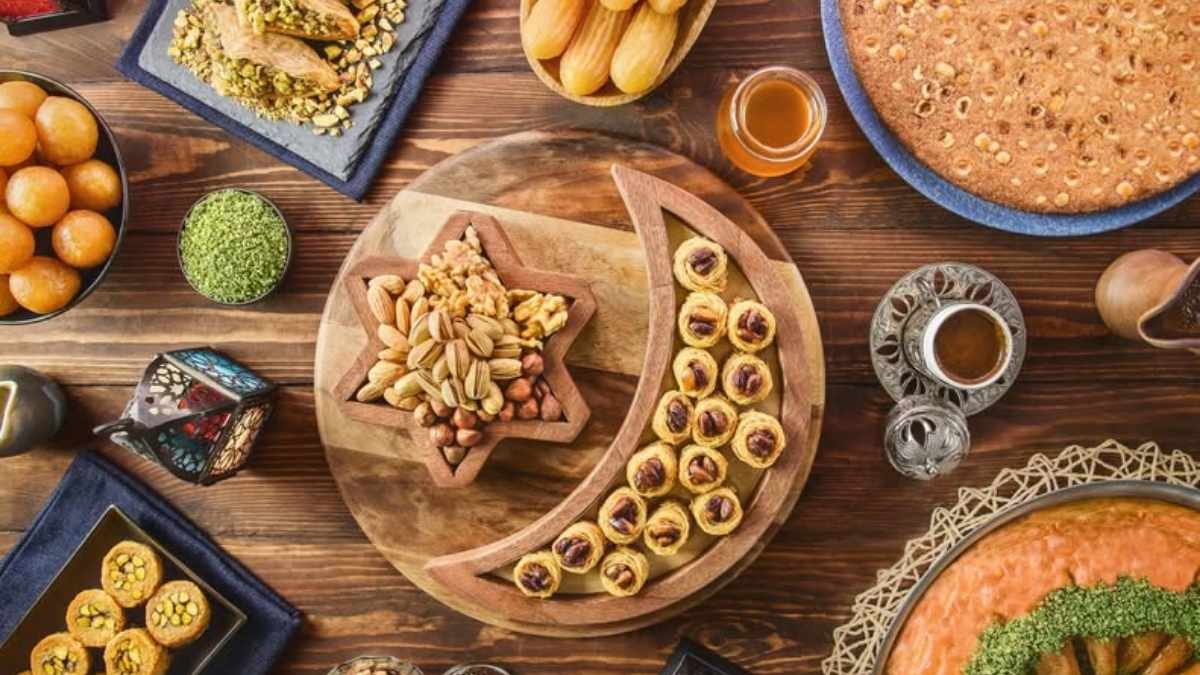When it is Diwali time, there is a slight chance that the sudden binge of sweets and savouries will make your stomach go topsy-turvy. When it comes to days like this, prepare Diwali Lehyam. One of the many traditional practices during this festivity includes the preparation and consumption of Diwali Lehyam, an herbal paste believed to possess medicinal properties and significant cultural significance.
What Is Diwali Lehyam?
View this post on Instagram
Diwali Lehyam is also known as Diwali Marundhu or Diwali Legiyam. It is a potent concoction made from a blend of various spices, herbs, and other ingredients. This Ayurvedic elixir holds a special place in Indian households, especially during the auspicious occasion of Diwali. Its preparation is a customary ritual deeply rooted in the belief of purifying the body, promoting good health, and enhancing digestion.
Many homemakers prepare it as part of their Deepavali sweets and savouries. In most Tamilian houses, a spoonful of lehyam is consumed after the early morning, customary Ganga snanam. It is said to be an antidote to the festival’s fatty cuisine and sweet binges. If kept at home, it could be utilised to treat minor digestive disorders.
A wide variety of components must be properly blended. They together create a harmonic blend in the complex process of preparing Diwali Lehyam. These components usually consist of dried ginger, cardamom, cloves, cumin seeds, dried grapes, jaggery, ghee, dried ginger, pepper, long pepper, and occasionally edible camphor. Every component has a special medicinal quality that helps with digestion, strengthens immunity, and relieves a variety of diseases.
Since it is, quite literally, medicine, it is not consumed with the same fervour as laddoos and murukkus. Therefore, if necessary, the small (and some not-so-small) ones are force-fed. Still, considering the advantages, the work is worthwhile.
Diwali Lehyam is believed to be auspicious and is usually eaten in modest amounts—about a teaspoon—either before breakfast or after meals. Its ingestion is thought to facilitate digestion, ward off illnesses, and strengthen immunity, especially in the varying seasons when health vulnerabilities could surface.
ALso Read: Throwing Diwali Party? Check Out These 6 Home Caterers In Mumbai For A Memorable Event
How To Prepare?
View this post on Instagram
While its ingredients may vary slightly from region to region, the essence of this traditional elixir remains consistent.
Ingredients:
- 50 grams dried ginger
- 25 grams black pepper
- 25 grams long pepper (also known as pippali)
- 10 grams cardamom pods
- 10 grams cloves
- 25 grams cumin seeds
- 25 grams ajwain (carom seeds)
- 50 grams dry grapes
- 250 grams jaggery
- 100 grams ghee (clarified butter)
- A pinch of edible camphor (optional)
Method:
- Dry roast the dried ginger, black pepper, long pepper, cardamom pods, cloves, cumin seeds, ajwain, and dry grapes separately in a pan over low heat until they release their aroma.
- Ensure they don’t burn. Once done, let them cool completely.
- Grind each roasted ingredient separately into a fine powder using a spice grinder or mortar and pestle.
- Combine all the powdered ingredients thoroughly in a bowl.
- In a separate pan, melt the jaggery with a little water to make a thick syrup. Strain it to remove impurities.
- Heat ghee in a pan and add the powdered spice mix to it. Stir well and roast for a few minutes on low heat.
- Gradually add the jaggery syrup to the pan and continue to cook the mixture, stirring continuously, until it reaches a thick, jam-like consistency. If using edible camphor, add a tiny pinch at this stage.
- Let the mixture cool. Once at room temperature, store it in an airtight container.
Its preparation and consumption continue to be a cherished tradition in the pursuit of well-being. What’s your Diwali cure elixir?
Cover image credits: Instagram/mylaporekitchens




